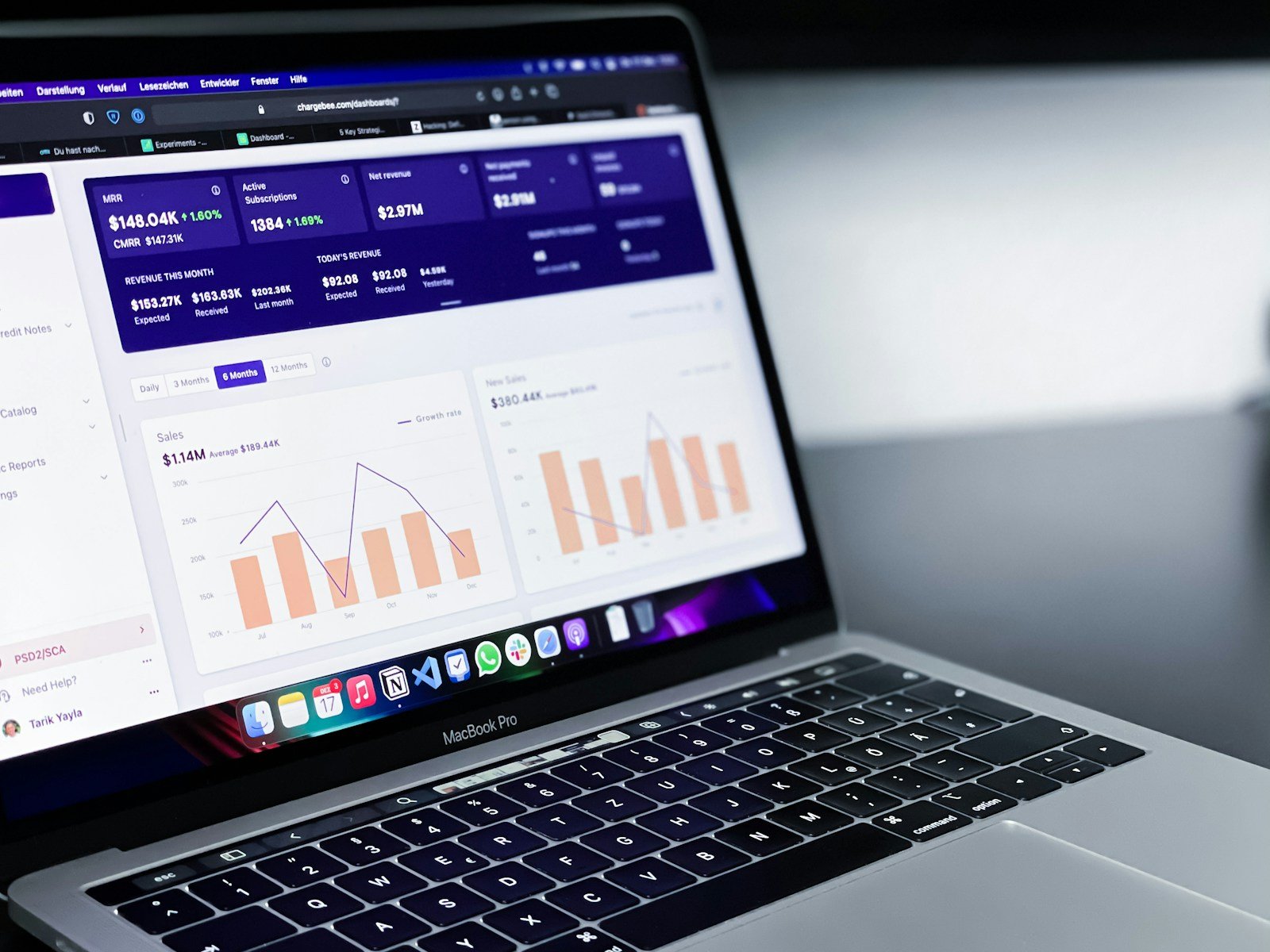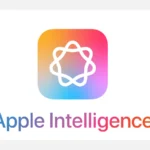Social media analytics tools help businesses track how well their posts are doing online. These tools show important numbers like how many people see posts, click links, or share content with friends. Finding the right social media analytics tool can save time and help brands make smarter decisions about what to post and when.
Many companies now offer ways to measure social media success without needing special training. From free options to paid services with more features, there’s something for every business size. These tools can track multiple accounts in one place and create reports that make sense of all the data.
1. Sprout Social
Sprout Social stands out as one of the most comprehensive social media analytics tools available today. It offers deep insights that help businesses understand what content works with their audience.
The platform provides both ready-made and customizable reporting options. This flexibility lets companies track the metrics that matter most to their specific goals.
With Sprout Social, businesses can identify important market trends. These insights help teams make better decisions about their social media strategy.
The tool goes beyond basic analytics by measuring the ROI of social media efforts. This feature is especially valuable for marketing teams who need to prove the value of their work.
Sprout Social also excels at monitoring important interactions across platforms. Users can track mentions, comments, and messages in one place.
What makes this tool special is its action-oriented approach. After gathering data, users can respond directly through the platform without switching between apps.
The analytics dashboard is clean and easy to understand. Even team members with limited data experience can grasp key metrics quickly.
For brands working with influencers, Sprout offers tools to track campaign performance. This helps companies maximize their return on influencer partnerships.
Businesses that want comprehensive social media analytics and reporting tools will find Sprout Social meets their needs. The platform consistently ranks among the best social media analytics tools for brands in 2025.
Beyond analytics, Sprout includes social media monitoring tools that track brand mentions and customer feedback. This combination of features creates a complete solution for social media management.
Companies looking to improve their social strategy can use Sprout to learn what resonates with customers. The insights gained help create more effective content and campaigns.
2. Hootsuite
Hootsuite is a powerful social media management tool that helps businesses track their social media performance. It allows users to connect and monitor multiple social accounts in one dashboard.
With Hootsuite, you can track the performance of various social channels from a single place. This saves time and makes data analysis more efficient.
The platform offers different plans to fit various business needs. Professional, Team, and Business plans let you connect up to 10 social accounts at once.
Hootsuite Analytics provides detailed reports on your social media performance. These reports can show you which content works best with your audience.
One key feature is the ability to track important metrics across platforms. You can see engagement rates, follower growth, and post reach all in one view.
The Advanced Analytics feature takes tracking further. It helps you measure actual ROI from your social media efforts.
You can track leads, conversions, and even revenue directly from social media. This makes it easier to show the business value of your social media work.
Some users on Reddit note that while Hootsuite is good, it does come with a significant price tag. They also mention that it may lag behind in some newer features.
Hootsuite works with many popular social platforms. This includes Facebook, Twitter, Instagram, LinkedIn, and more.
The tool also offers scheduling features alongside its analytics. This means you can plan content and then measure its success all in one place.
For teams, Hootsuite provides ways to work together on social media tasks. Multiple team members can use the platform with different access levels.
Many marketing professionals consider Hootsuite one of the top social media analytics tools available today. Its comprehensive features make it suitable for businesses of all sizes.
3. Google Analytics
Google Analytics stands out as a powerful tool for tracking social media performance. This free service from Google helps brands understand how users interact with their content across platforms.
While not strictly a social-only tool, Google Analytics offers comprehensive insights about your social activities. It shows you which social networks drive the most traffic to your website and how these visitors behave once they arrive.
Setting up Google Analytics is straightforward. Once installed, you can create custom reports that focus specifically on your social media performance and conversion rates.
One of Google Analytics’ best features is its ability to track referral traffic from various social platforms. This helps you see which networks bring the most valuable visitors to your site.
The tool also lets you set up goals to measure conversions. For example, you can track how many visitors from Twitter sign up for your newsletter or how many Facebook users make a purchase.
Google Analytics shines when it comes to understanding the customer journey. It tracks how users move through your website after clicking a social media link, giving you insight into which content performs best.
The dashboard is customizable to fit your needs. You can create views that focus only on social media traffic, making it easier to spot trends and opportunities.
Best of all, Google Analytics is free of charge, making it accessible to businesses of all sizes. This makes it an excellent starting point for brands just beginning to analyze their social media impact.
When combined with platform-specific analytics, Google Analytics gives you a complete picture of your social media performance. It helps connect your social efforts to real business results like sales and lead generation.
For marketing teams looking to improve ROI, Google Analytics provides the data needed to make better decisions about social media strategy. It shows not just what content gets clicks, but what content drives valuable actions.
4. Keyhole
Keyhole is a powerful social media analytics tool that works across multiple platforms. It helps brands track their online presence in real time.
This tool lets you monitor X, Instagram, Facebook, YouTube, LinkedIn, and TikTok from one dashboard. Users can see how their content performs across all platforms without switching between different apps.
Keyhole stands out by offering real-time monitoring for campaigns and brand mentions. This feature helps teams respond quickly to trends and customer feedback.
The platform gives users the ability to track specific hashtags and keywords. This tracking helps brands understand what people are saying about them online.
Businesses use Keyhole to measure campaign success and track industry conversations. The data helps them make better marketing decisions based on actual user engagement.
One helpful feature is Keyhole’s ability to monitor influencer activity. Companies can see how partnerships perform and which influencers give the best results.
Keyhole also offers event tracking tools. These help brands measure the impact of their online and offline events through social media mentions and engagement.
The platform provides detailed reports that are easy to understand. These reports help marketing teams explain results to managers and clients who may not be social media experts.
Users appreciate how Keyhole brings all social analytics together in one place. This unified view saves time and helps spot patterns across different platforms.
For companies wanting to go beyond basic metrics, Keyhole offers deeper insights. These include sentiment analysis and audience demographics to better understand followers.
The tool helps brands spot both positive feedback and potential problems. This early warning system lets teams address issues before they grow larger.
5. Buffer
Buffer stands out as a social media management platform that offers strong analytics features. The tool helps brands, businesses, and individuals track their social media performance with easy-to-understand metrics.
With Buffer Analyze, users can make better decisions based on clear data. It shows you how your posts are doing across different platforms in one place.
The platform lets you build reports quickly without the hassle of copying and pasting data. You can pick which numbers matter most to you and set the time period you want to check.
These reports look good and match your brand. This makes sharing insights with team members or clients much easier and more professional.
Buffer is known for being straightforward and user-friendly. Even if you’re new to social media analytics, you can learn to use it without much trouble.
The tool works well for scheduling posts too. This combination of posting and tracking features makes it a complete package for social media management.
Users can see which content gets the most attention. This helps them create more of what works and less of what doesn’t.
Buffer shows growth trends over time. Teams can watch how their follower counts and engagement rates change with their efforts.
The platform offers both free and paid options. Small businesses can start with basic features and upgrade as they grow.
For teams looking to prove their social media value, Buffer provides the numbers needed to show real results. This makes it easier to justify social media spending to managers or clients.
6. Sendible
Sendible stands out as one of the top social media management tools for agencies and marketing teams. This platform makes handling multiple social accounts simple and efficient.
The tool works with major platforms like Facebook, Instagram, and more. Users can schedule posts, monitor engagement, and track performance all in one place.
Sendible’s Reporting Hub offers powerful analytics features. Teams can get engagement overviews with just one click, saving valuable time.
The platform lets users create branded reports for clients. These reports can be automated to send regularly, making client communication easier.
In-depth insights help teams understand what content works best. This data helps guide future posting strategies and content creation.
Marketers appreciate Sendible for its comprehensive analysis tools. The platform shows which posts get the most engagement and why.
According to G2 rankings, Sendible ranks among the 10 best social media tools available. Its user-friendly interface makes it accessible even for beginners.
Teams can monitor brand mentions across social platforms. This feature helps with reputation management and customer service.
Agencies find Sendible especially useful for managing multiple client accounts. The analytics capabilities go beyond basic metrics. Users can track growth trends, audience demographics, and content performance over time.
Custom reporting options let teams highlight the metrics that matter most. Reports can be tailored to each client’s specific goals and KPIs.
Sendible’s scheduling tools work alongside its analytics features. This integration helps teams post at optimal times based on performance data.
7. Zoho Social
Zoho Social is a comprehensive social media management tool designed for businesses and agencies looking to grow their online presence. It combines posting features with robust analytics capabilities.
The platform helps companies track and measure what truly matters to their brand. With its social media analytics software, users can better understand their audience and improve their content strategy.
One standout feature is the ability to identify top-performing content. This helps teams repeat successful approaches and avoid wasting time on ineffective strategies.
Zoho Social offers monitoring tools that track keywords, brand hashtags, and product reviews. This function helps businesses find new leads and stay on top of conversations about their brand.
The analytics dashboard pulls data from multiple social networks into one place. Teams can view engagement metrics, follower growth, and content performance without switching between different platforms.
Users can create custom reports to share with clients or team members. These reports highlight key metrics and show progress toward social media goals.
Zoho Social also allows for monitoring public accounts through its monitor feature. This helps businesses keep an eye on competitors and industry trends.
The platform works well for both small businesses and agencies managing multiple clients. Its interface is clean and straightforward, making it accessible even for beginners.
Pricing is competitive compared to other tools with similar features. Zoho offers a free plan with basic functions, making it easy for small teams to get started.
Integration with other Zoho products is another plus. Companies already using Zoho CRM or other tools can connect their social data for a more complete business picture.
8. Sprinklr
Sprinklr stands out as a powerful platform for social media analytics. It offers advanced listening and monitoring capabilities that give users a deep understanding of their audience.
The platform collects data from over 30 digital channels. This wide reach helps businesses track conversations about their brand across the internet.
Sprinklr’s AI-powered analytics tools are part of its Smart Insights feature. These tools help uncover valuable insights from billions of data points.
One key strength of Sprinklr is its unified dashboard. Users can see all their social media data in one place, making it easier to spot trends and patterns.
The platform provides real-time insights, allowing businesses to respond quickly to emerging situations. This can be especially helpful during PR events or product launches.
Competitor analysis is another strong point for Sprinklr. The tool lets companies track how they stack up against others in their industry on social media.
Social media management is also included in Sprinklr’s toolkit. Users can schedule posts and boost engagement alongside their analytics work.
For businesses that need comprehensive media intelligence, Sprinklr delivers. Its all-in-one approach means teams don’t need multiple tools to manage their social media presence.
The AI-driven capabilities make Sprinklr particularly valuable for large enterprises. The system can process massive amounts of data and highlight the most important findings.
Companies looking for advanced social media monitoring will find Sprinklr’s features helpful. The platform goes beyond basic metrics to provide actionable insights.
Sprinklr also helps with social media competitor analysis, allowing brands to benchmark their performance. This competitive intelligence can guide strategy development.
For teams seeking a complete solution, Sprinklr ranks among the top social media management tools available. Its comprehensive approach makes it a strong choice for businesses with complex social media needs.
9. Rival IQ
Rival IQ stands out as a comprehensive social media analytics platform designed for marketing professionals. It offers detailed competitive analysis features that help businesses measure their performance against others in their industry.
With Rival IQ, users can access live social benchmark dashboards that compare their metrics, hashtags, and content against thousands of other social profiles. This comparison helps teams understand where they stand in their market.
The platform combines both public and private social data in its analysis. Public data includes engagement and impressions, while private data covers reach and Instagram Stories performance.
Rival IQ works well for agencies managing multiple clients. It provides comprehensive social analysis capabilities in one place, making it easier to track performance across different accounts and platforms.
Marketing teams can use Rival IQ to create detailed social reports and audits. These reports help show the value of social media efforts to clients or company leadership.
The tool operates at an enterprise level, offering more advanced features than basic analytics platforms. It gives users access to competitive intelligence that many other tools don’t provide.
Rival IQ offers a free 14-day trial for new users. This trial period lets teams test the platform’s features before committing to a subscription.
For businesses focused on content marketing, Rival IQ provides insights into which content types perform best. This information helps teams create more effective content strategies.
The platform also includes SEO tools alongside its social media features. This combination gives marketers a more complete view of their digital marketing performance.
10. Meltwater
Meltwater stands out as a top choice for social media analytics in 2025. This platform helps businesses track and analyze conversations across major social networks, blogs, forums, review sites, and even podcasts.
The tool excels at giving users a real-time view of social media data. Companies can quickly see what people are saying about their brand or industry right now, not just from yesterday or last week.
Meltwater doesn’t just collect data—it makes sense of it. The platform can identify your most engaged users on each social channel, helping you understand who your true fans are.
Beyond simple metrics, Meltwater offers powerful social media monitoring that scans billions of conversations. This helps brands spot trends and get useful insights about their audience.
What sets Meltwater apart is its wide coverage. While some tools only track the big social networks, Meltwater casts a wider net to capture mentions across the web.
The platform is designed for both marketing teams and PR professionals. Its clean interface makes it easy to create reports that show the impact of your social media efforts.
Meltwater ranks among the top social media monitoring tools for 2025, alongside competitors like Sprout Social, Hubspot, and Hootsuite. Many businesses choose it for its mix of deep analytics and user-friendly features.
For companies that need to track industry trends, Meltwater offers tools to spot changes in what people are talking about. This can help brands stay ahead of shifts in their market.
The platform also helps teams respond to customer comments more quickly. By catching mentions as they happen, companies can jump into conversations while they’re still active.
Pricing isn’t listed publicly, so interested companies need to contact Meltwater directly for a custom quote based on their needs.
Benefits of Using Social Media Analytics Tools
Social media analytics tools offer powerful advantages for brands seeking to maximize their online presence. These tools transform raw data into actionable insights that drive business growth and customer engagement.
Enhanced Marketing Strategies
Social media analytics tools help companies fine-tune their marketing efforts with data-driven decisions. Brands can track key metrics like reach, engagement, clicks, and conversions to see what works and what doesn’t. This information lets teams adjust campaigns quickly when needed.
With these tools, companies can:
- Identify top-performing content to create more of what resonates
- Optimize posting schedules based on when audiences are most active
- Measure ROI of social media campaigns accurately
- Spot emerging trends before competitors
Analytics help businesses beat the competition by staying ahead of market shifts. They also enable teams to test different approaches and see results in real time, rather than waiting weeks for campaign data.
Improved Audience Understanding
Analytics tools provide deep insights into who follows and engages with a brand. Companies can examine demographics, interests, and behaviors to create content that truly connects with their target market.
These platforms help businesses:
- Map audience demographics including age, location, and gender
- Track engagement patterns across different user segments
- Identify brand advocates who regularly share content
- Understand audience sentiment toward products or services
This knowledge allows companies to tailor their messaging to specific audience needs. It also helps brands improve the customer experience by responding to pain points revealed through social listening.
With better audience insights, businesses can create more relevant products and services based on actual customer feedback rather than assumptions.
Data Privacy and Security Considerations
Using social media analytics tools requires careful attention to privacy issues. Companies must balance getting useful insights with keeping user data safe and following laws.
Understanding Compliance Regulations
Social media analytics must follow rules like GDPR in Europe and CCPA in California. These laws give users rights over their data and require companies to be clear about how they use information.
Many social media platforms collect excessive data from users. This creates legal risks for businesses using these analytics tools. Companies must:
- Get proper consent before collecting user data
- Store information securely
- Delete data when no longer needed
- Provide access to users who request their information
When choosing analytics tools, look for ones with built-in compliance features. These help track consent and manage data retention policies automatically.
Protecting User Data
Big data analytics creates several privacy challenges that companies must address. Using strong security measures helps prevent data breaches that could harm both users and the company’s reputation.
Key security practices include:
- Data encryption – Both during storage and transmission
- Access controls – Limiting who can see sensitive information
- Regular security audits – Finding and fixing vulnerabilities
- Anonymization techniques – Removing identifying details when possible
Top analytics tools offer security features like two-factor authentication and role-based access. These let companies control exactly who can view different types of data.
Companies should also create clear policies about data sharing with third parties. This helps prevent information from being used in ways users didn’t expect or approve.
Frequently Asked Questions
Social media analytics tools offer various features and capabilities to help businesses make data-driven decisions. Here are answers to common questions about choosing and using these tools effectively.
What are the key features to consider when selecting a social media analytics tool?
When choosing a social media analytics tool, look for comprehensive reporting features. These features should track engagement metrics like likes, comments, and shares. These metrics help you understand what content works best.
Platform coverage is also important. Make sure the tool supports all social networks your business uses. Some tools track Facebook and Twitter but miss platforms like TikTok or LinkedIn.
Data visualization capabilities are crucial for turning complex numbers into easy-to-understand charts and graphs. Good tools also offer competitor analysis features to benchmark your performance.
Which social media analytics tools offer the best comprehensive reporting capabilities?
Sprout Social stands out with its detailed cross-platform reporting. It provides unified analytics across multiple social channels with customizable reports for different teams.
Hootsuite’s analytics offers excellent tracking of key metrics and trend analysis. Their reports include engagement rates, follower growth, and content performance.
Google Analytics integrates with social media data to show how social traffic converts on your website. This connection between social activities and actual business outcomes makes it valuable.
How do free social media analytics tools compare to paid versions?
Free tools generally offer basic metrics like follower counts, likes, and simple engagement rates. They typically limit the reporting period to 7-30 days and restrict how many accounts you can track.
Paid tools provide deeper insights including sentiment analysis, competitor comparisons, and audience demographics. They store historical data longer, allowing for better trend analysis over time.
Buffer’s free plan offers basic analytics for a limited number of accounts. Upgrading to paid versions unlocks more detailed reporting capabilities and supports more profiles.
Can you recommend top social media analytics tools for small businesses or individual users?
Buffer works well for small businesses with its affordable plans and user-friendly interface. It provides essential analytics without overwhelming new users.
Hootsuite offers scalable plans that grow with your business. Their starter plans include basic analytics that cover most small business needs at a reasonable price point.
Social media monitoring tools like Brand24 can be good options for individuals who need to track mentions and engagement across platforms without complex features.
What are the benefits of using an analytics tool for monitoring multiple social media platforms at once?
Using a unified analytics tool saves significant time by eliminating the need to log into multiple platforms. This efficiency lets teams focus on strategy rather than data collection.
Consistent reporting across platforms allows for better performance comparisons. You can easily see if your Instagram content outperforms your Facebook posts using the same metrics.
Cross-platform tools help identify overall trends and patterns in your social media performance. They also streamline sharing reports with team members or clients.
How do specific tools like Hootsuite and Sprout Social differ in their analytics offerings?
Hootsuite excels in real-time monitoring and basic performance metrics. Their analytics dashboard focuses on engagement tracking and scheduling optimization to improve posting times.
Meanwhile, Sprout Social offers more advanced social listening and sentiment analysis features. Their reports dig deeper into audience demographics and brand health metrics.
The user interfaces differ significantly between these tools. Hootsuite uses a stream-based layout while Sprout Social offers a more visually polished reporting experience with more emphasis on presentation-ready reports.







